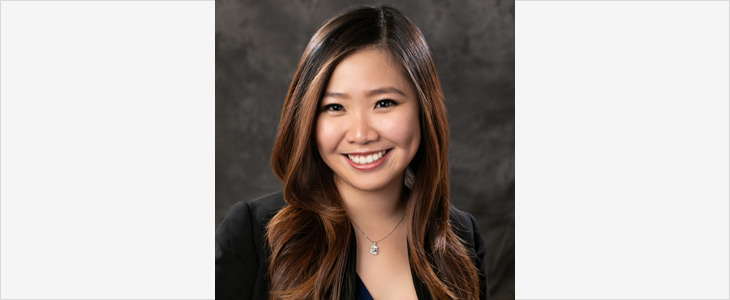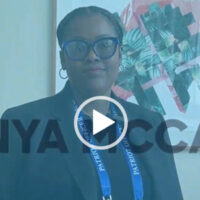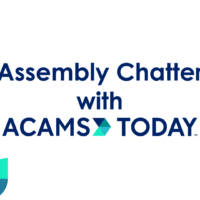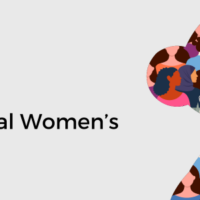
ACAMS Today interviewed Hera U. Smith, CAMS, global sanctions compliance officer of Associated Foreign Exchange, Inc. (AFEX), to discuss her work with international sanctions and her advice for increasing the participation of women in the anti-financial crime field. AFEX is one of the leading global payments and risk management solutions providers. Smith is responsible for overseeing the legal, technological, and operational matters of the company’s sanctions programs in the Americas, Europe, Middle East and Africa, and Asia-Pacific regions.
Before joining AFEX, Smith was the assistant Office of Foreign Assets Control (OFAC) officer of East West Bank. Prior to that, she was an associate at a law office in Los Angeles. She was admitted to the California and Philippine Bar Association and is the managing editor of the California International Law Journal. Her published articles include Navigating U.S. Economic and Trade Sanctions: A Compliance Lesson for International Banking and Trade Finance and The Rise of the Machines: the Latest Trends in Sanctions and Sanctions Technology.
ACAMS Today: This year the theme for International Women’s Day is, “Think Equal, Build Smart, Innovate for Change.” On a regular day, what does it mean for you to think about equality, build smart solutions and innovate change—inside and outside of the office?
Hera U. Smith: Women need to be smart and innovative to break the glass ceiling and achieve equality in the workplace. How do we achieve that exactly? Exploring opportunities outside your organization, such as attending conferences or joining associations, it helps you build your brand and gain confidence. This translates to better performance in the workplace and gives you access to a wide network of experts that you can reach out to and ask for advice.
In my case, attending conferences has opened up numerous opportunities to expand my network. It also gave me the chance to meet other women leaders that were not only inspirational but were also more than willing to lend a helping hand and lift each other up.
AT: As the global sanctions’ compliance officer for AFEX, you manage legal, technological and operational matters within the company’s sanctions program. How do you create balance and establish an action plan to fulfill all tasks?
HUS: The Eisenhower Matrix helps me decide what’s urgent and important; focus on my priorities; and table or delegate the rest. Things that are important but not urgent tend to get pushed back so I make sure to block some time in my calendar to work on those.
AT: At the ACAMS 24th Annual International AML & Financial Crime Conference, you will be speaking about sanctions management. What is your favorite part about the work you do with international sanctions?
HUS:I absolutely love how timely, relevant, and dynamic sanctions issues and regulations are!
You can hear about some political issue on the news on the way to work and a couple of hours later, receive an email from OFAC about a new regulation addressing the same issue. It’s like a global political saga and I actually get paid to read about it! And I get to play a part in implementing it as well, protecting the world from miscreants and terrorists and stopping them from using the U.S. financial system to profit and further their agenda.
AT: Tell us about your role as managing editor of the California International Law Journal. Where do you like to find stories and inspiration?
HUS: They say the law is a reflection of cultural and moral norms. Since the journal receives legal articles from lawyers all around the world, sifting through and reading them gives me glimpses into the struggles and triumphs of different cultures and people. There was one article that I was working on that delved into the struggles of women in India—the rape, abuse, human trafficking—and what the government could do to address these issues. Reading these stories always helps me appreciate how fortunate I am to be in this [U.S.] country and to be in a position to fight crime and make a difference.
AT: With more than 70,000 Association of Certified Anti-Money Laundering Specialists’ (ACAMS) members fighting financial crime worldwide, how can the ACAMS community enhance women’s empowerment?
HUS: Finance has traditionally been a field dominated by men, which is why it is important to have organizations like ACAMS provide training to increase exposure to financial trends and issues to everyone, regardless of gender. In addition, providing race- and gender-blind certifications like CAMS allows women and minorities to increase their earning capacity through merit.
However, as with everything in life, there is room for improvement. Consciously making a point to invite more women as speakers for panels, webinars, and conferences would even out the prevalence of all-male panels. This has a two-fold effect. First, potential women industry leaders would have the same amount of exposure as men, which will inevitably contribute to the decrease in the wage gap. Second, young women would have more female mentors to look up and aspire to, which would increase the participation of women in this field.










